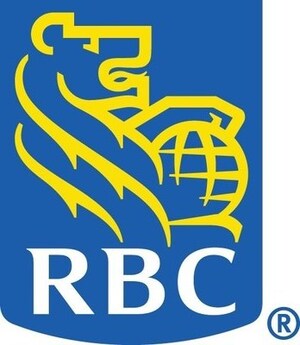Not just a phase: Five early warning signs of children's mental illness
TORONTO, May 6, 2013 /CNW/ - Parents are prepared to deal with their kids' cuts and scrapes, but research shows they are largely unequipped to grapple with or even identify possible mental health issues in their children.
In recognition of Children's Mental Health Awareness Week (May 5 to 11), the RBC Children's Mental Health Project is launching Know the Signs, a national campaign highlighting five early warning signs to help parents identify possible indicators of childhood mental illness:
- Mood changes/swings: Persistent sadness or withdrawal.
- Anxiety: Frequent, prolonged worrying.
- Sudden change in grades: Poor concentration can lead to anxiety about going to school or a change in classroom success.
- Heightened emotions: Exaggerated fear or anger for seemingly no reason.
- Behavioral changes or acting out: Out-of-character changes in behavior or personality.
Kaitlin Hrudey, daughter of Kelly Hrudey former NHL goaltender and hockey commentator, now 20, was diagnosed with an anxiety disorder eight years ago. Learning how to manage Kaitlin's illness took time, with many sleepless nights and struggles, but today, Kaitlin and Kelly are sharing their story for the first time to help raise awareness and reinforce the importance of early intervention.
"You know your children. Even if they aren't telling you something's wrong, as a parent, you instinctively know," said Kelly Hrudey. "We noticed changes in our daughter's behavior but chalked it up to a 'stage'. I wish I had known the warning signs to look for, so we could have recognized the problem earlier. This is why awareness and early detection are so important."
According to Kaitlin, it's essential that parents and children have an open dialogue: "When I was 12, I remember knowing something was wrong, but didn't know what it was, which really scared me. I knew the right thing to do was to tell my parents so we could get through this together."
Nearly one in five Canadian children and adolescents will be touched by a mental disorder serious enough to cause social, emotional or academic problems. This not the kind of struggle that children outgrow on their own: 70 per cent of adults with a mental illness first experienced symptoms as children or youth1.
"A child who seems to be going through a difficult phase could actually be suffering from a treatable mental disorder, yet most affected children do not get the help they need because parents don't recognize the warning signs," said Rona Maynard, mental health advocate and author of Silent Families, Suffering Children and Youth, a white paper on the findings of the 2012 RBC Children's Mental Health Project Parents poll.
Most parents know that mental illness touches everyone. According to the 2012 RBC Children's Mental Health Parents Poll, 57 per cent of respondents know of an adult in their family with a diagnosed mental health condition, while 28 per cent are related to a diagnosed child. Despite that level of awareness, the findings reveal that there's a clear disconnect between parents and children in being able to talk about mental illness:
- Most parents assume that if their child had a mental health concern, either they or the other parent would be the first to know.
- Among young people who have visited the Kids' Help Phone website, friends were the confidante of choice (50 per cent), with mom or dad a distant second.
- Twenty per cent of youth would not confide in anyone.
- Most parents would take a wait-and-see approach to symptoms such as exaggerated fear, constant anxiety about going to school, persistent sadness or moodiness and a sudden change in grades.
Experts agree that the best solution is to raise awareness of the warning signs among parents, and encourage open discussion with their children.
"Just admitting to your kids that you've had a bad day at work or are worried about Grandma's health can be a conversation-starter," added Maynard. "By talking about your own feelings, you're encouraging your child to open up. You're boosting the odds that young people will get the help they need and break the cycle of frustration."
About the RBC Children's Mental Health Project
The RBC Children's Mental Health Project is a multi-year philanthropic commitment to support community-based and hospital programs that reduce stigma, provide early intervention and increase public awareness about children's mental health issues. Since 2008, RBC has donated more than $16 million to over 200 community-based and hospital programs across Canada and is dedicated to ensuring that everyone has access to trusted information and resources when they need it.
About RBC's Commitment to Community and Sustainability
Royal Bank of Canada (RY on TSX and NYSE) and its subsidiaries operate under the master brand name RBC. We employ approximately 80,000 full- and part-time employees who serve more than 15 million personal, business, public sector and institutional clients through offices in Canada, the U.S. and 49 other countries. RBC is recognized among the world's financial, social and environmental leaders and is listed on the 2012 - 2013 Dow Jones Sustainability World Index, the DJSI North American Index, the Jantzi Social Index and the FTSE4Good Index. RBC is one of Canada's
Greenest Employers, one of Canada's 50 Most Socially Responsible Corporations and among the Global 100 Most Sustainable Corporations in the World. Learn more at www.rbc.com/community-sustainability.
RBC supports a broad range of community initiatives through donations, sponsorships and employee volunteer activities. In 2012, we contributed more than $95 million to causes worldwide, including donations and community investments of more than $64 million and $31 million in sponsorships.
SOURCE: RBC

WANT YOUR COMPANY'S NEWS FEATURED ON PRNEWSWIRE.COM?
Newsrooms &
Influencers
Digital Media
Outlets
Journalists
Opted In



Share this article